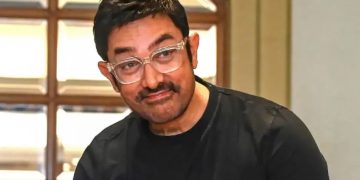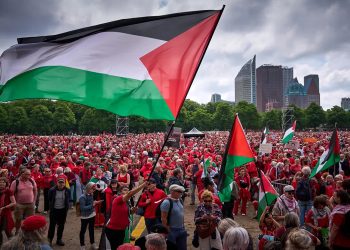For the past few decades in Pakistan, the responsibility for general elections has generally rested on the shoulders of successive governments, and the sequence of Anwaarul Haq Kakar being the 8th Chief Minister underpins this trend.
In this context, it is expected that the caretaker PM will initiate the process for general elections, while according to the Constitution of Pakistan, elections should be held within 90 days when the assembly is dissolved days before the completion of its tenure. This political scenario emerged at a time when we celebrated our 76th Independence Day on August 14.
Anwaarul Haq Kakar, hailing from Balochistan, is also perceived to have a genuine motive for his appointment as caretaker PM. Given that Balochistan, a small province that has become a target of terrorism by enemies, including the Indian spy agency “RAW” is disproportionately affected. Part of the budget allocated by this agency is dedicated to manipulating innocent people in Balochistan towards terrorism. As a result, those who fought alongside the state and traversed mountains for the nation, are now being neglected and their importance downplayed. This perception is indeed far from the truth.
In the view of the writer, important political parties of PDM including the PML-N and PTI, as well as other opposition groups, have refrained from criticizing Anwaarul Haq Kakar appointment. However, Anwaarul Haq Kakar’s tenure in power will be limited, and his powers will undoubtedly be limited compared to those of a regular Prime Minister. Nevertheless, the responsibility for holding general elections is a weighty task that could reshape the trajectory of national politics, thereby impacting various national and international aspects.
On the other hand, the Pakistan Muslim League-Nawaz has formally nominated Nawaz Sharif as its candidate for the upcoming general elections. The possibility of nominating Imran Khan as a candidate from PTI is currently bleak as the command of the party is with Shah Mahmood. The current chairman of PTI is disqualified for five years, and he is currently in jail arrest.
Interestingly, during Shahbaz Sharif’s government over the last 16 months, leveraging the NAB Ordinance, several political leaders and ministers’ cases have been concluded, including of Shahbaz Sharif and his sons, former Chief Minister Punjab Hamza Shahbaz and Suleman Shahbaz. Some cases have seen a weak prosecution, while in others, witnesses have been coerced. However, the new government and cabinet seem to be opening more cases instead of closing them.
From this perspective, it can be said that Imran Khan forced the opposition, including PML-N and PPP, into jail using false and genuine cases as Prime Minister, and later, the PDM, including various parties such as PML-N, imprisoned their leaders and initiated a country-wide crackdown. Although it is different to weigh the significance of cases, it seems to illustrate the reward of action.
However, as we mentioned above, cases won’t be closed; they will instead be opened further, and the wheel of retribution may take another turn with the opening of new investigations. Nawaz Sharif has certainly positioned himself as a candidate for Prime Minister, but the allegations of inflation, unemployment, and severe economic crises will all be attributed to Shahbaz Sharif’s government. These issues will likely tarnish the victory that PML-N achieves through the majority of votes from the public.
At this juncture, the PML-N’s victory may be attributed to a miscalculation with Shahbaz Sharif, where he failed to become Prime Minister, although he did serve the people as Chief Minister. However, Nawaz Sharif is an experienced individual who has been Prime Minister thrice before, so it is imperative for the public to carefully consider the prospect of making him Prime Minister again.
It can be noted that the PML-N vote bank remains intact. PTI had largely gained control over their vote bank, but now, due to the departure of PTI dissidents, the establishment of the Istekham-e-Pakistan Party and the PTI Parliamentarians, the situation has largely changed, and PML-N is once again viewed favorably by the public.
The need of the hour is for the general public to participate in the upcoming elections, to come out of their homes on the day of voting, and choose a party that offers a clear action plan to address issues such as inflation, unemployment, and economic adversity, and to select a leader who is not only accepted by the Pakistani public but also respected by the international community.



























